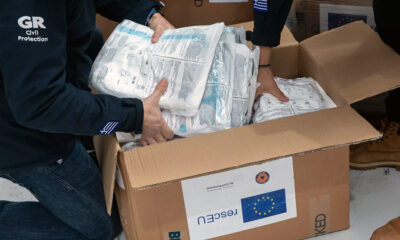Business
World Bank proposal would shift $600 million from Afghan trust

The World Bank’s management has signed off on a proposal that would repurpose $600 million of the just over $1 billion left in a frozen trust fund to benefit Afghan education, families and communities, a source familiar with the plan told Reuters.
The board of the World Bank is due to discuss the proposal on March 1, with a final decision on disbursement of the funds left up to the donors of Afghanistan Reconstruction Trust Fund (ARTF), which is administered by the bank, the source said.
The funds would be disbursed by various United Nations agencies, including UNICEF and the Food and Agriculture Organization, amid escalating concerns about the collapsing Afghan economy, the source told Reuters.
Donors to the trust fund in December approved the transfer of $280 million from the trust to the World Food Program and UNICEF to support nutrition and health in Afghanistan.
U.N. Secretary-General Antonio Guterres urged the U.N. Security Council last month to free up the remaining $1.2 billion in the fund to help Afghanistan’s people survive the winter.
The fresh funds will help support food security, health and education programs in Afghanistan as it sinks into a severe economic and humanitarian crisis. The crisis accelerated in August when the former government collapsed and the last U.S. and allied troops withdrew.
The United States and other donors cut off the financial aid that had kept Afghanistan running during 20 years of war after the Islamic Emirate of Afghanistan (IEA) takeover.
The United Nations is warning that nearly 23 million people – about 55% of the population – are facing extreme levels of hunger, with nearly 9 million at risk of famine as winter takes hold in the impoverished country.
The United States last week announced plans to free up half of the $7 billion in frozen Afghan central bank assets on U.S. soil to help the Afghan people while holding the rest to possibly satisfy terrorism-related lawsuits against the IEA, the White House said on Friday.
Business
Afghanistan ships first consignment to Europe via Khaf-Herat railway
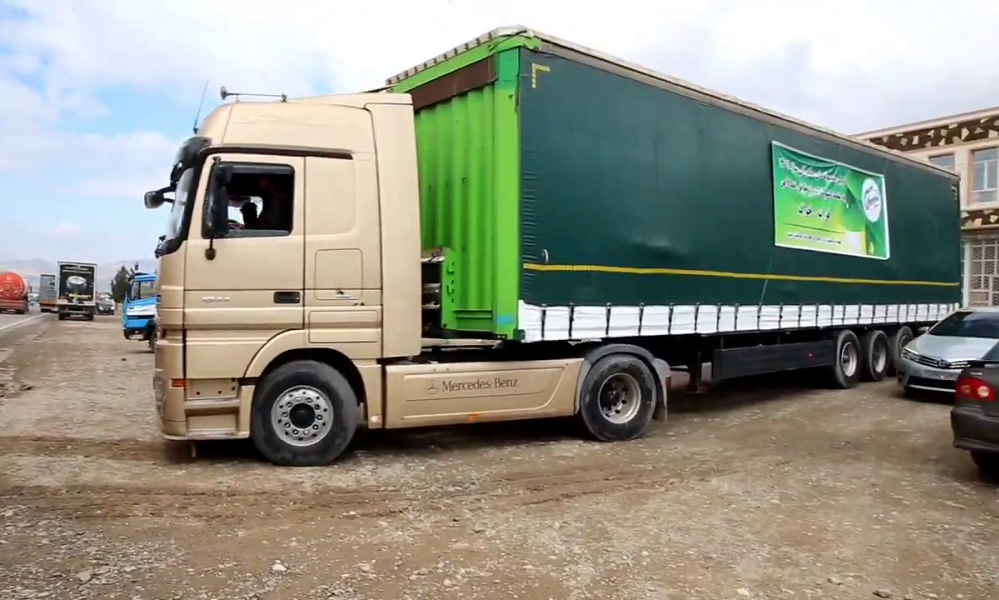
The press office of the Herat governor has announced the export of Afghanistan’s first shipment via the Khaf-Herat railway to Europe.
According to a statement from the office, the shipment includes 200 tons of dried fruits worth $1.2 million, which were exported to Turkey and Europe through the Khaf-Herat railway in the presence of Islam Jar, the governor of this province, and the Iranian Consul General.
The exported dried fruits in this shipment include pistachios, raisins, almonds, and pine nuts.
The statement added that over the past three months, more than 35,000 tons of goods have been transferred via the Khaf-Herat railway.
Business
Russia’s LPG exports to Afghanistan boom as Europe shuns it
The exports to Afghanistan, the main consumer of Russia’s LPG in the region, rose by 52% for the period to 71,000 tons.

Russia’s exports of liquefied petroleum gas (LPG) to Afghanistan and ex-Soviet states in Central Asia have jumped following introduction of European Union sanctions against Moscow at the end of 2024, industry sources said on Wednesday, Reuters reported.
The European Union’s sanctions against Russia’s LPG over the war in Ukraine took effect on December 20. The restrictions were proposed last year by Poland, one of Russia’s largest LPG importers.
LPG, or propane and butane, is mainly used as fuel for cars, heating and to produce other petrochemicals.
According to the industry sources, railway supplies of LPG from Russia’s plants, including the Kazrosgas joint venture with Kazakhstan, jumped to the region by 80% year on year in January – February to 140,000 metric tons, read the report.
The exports to Afghanistan, the main consumer of Russia’s LPG in the region, rose by 52% for the period to 71,000 tons.
Traders expect great scope for more supplies to Afghanistan, where annual demand for LPG is seen at around 700,000 tons per year.
Business
Azizi and Zhao Xing discuss increasing Afghanistan’s exports to China

Acting Minister of Industry and Commerce Nooruddin Azizi and Zhao Xing, the Chinese Ambassador to Kabul, met on Tuesday and discussed increasing Afghanistan’s exports to China, particularly pine nuts, pomegranates, and precious and semi-precious stones such as nephrite, onyx, lapis lazuli, and talc, the ministry said in a statement.
According to the statement the goal of the meeting was to facilitate direct exports to China in order to reduce transit costs and transportation of Afghan goods, as well as to address the importation of machinery needed for the country.
Azizi and Zhao have agreed to establish a joint working group for further coordination, expanding trade relations, and creating facilities for trade, with the aim of holding regular meetings, the statement read.
-

 International Sports4 days ago
International Sports4 days agoRCB bring fireworks to opening night of IPL 2025
-
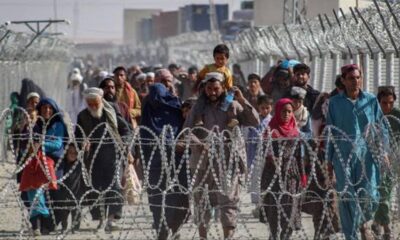
 Latest News4 days ago
Latest News4 days agoTorkham border reopens for pedestrians
-
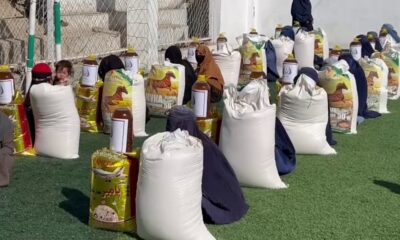
 Latest News4 days ago
Latest News4 days agoBayat Foundation distributes food aid to dozens of needy families in Balkh
-

 International Sports3 days ago
International Sports3 days agoIPL 2025: Sunrisers on a batting rampage; triumph over Rajasthan Royals
-

 Business4 days ago
Business4 days agoDeputy PM inaugurates launch of Arghandi Transport Terminal Project in Kabul Province
-

 Latest News3 days ago
Latest News3 days agoEU says girls’ education crucial for Afghanistan’s long-term prosperity
-

 Sport3 days ago
Sport3 days agoACB names Afghanistan A squad for tri-nation series
-
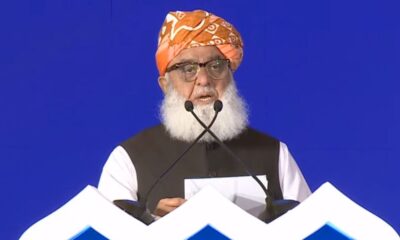
 Latest News4 days ago
Latest News4 days agoPakistan’s mistakes played significant role in rise of terrorism: Maulana Fazl-ur-Rehman












